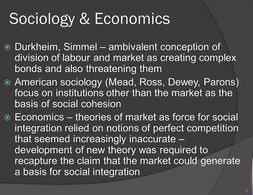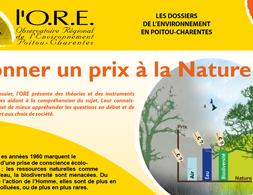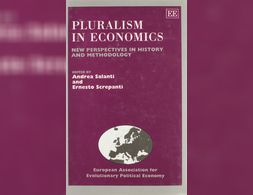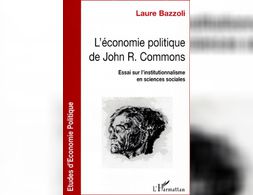9 results
In this short talk, Nicole Pepperell discusses Albert Hirschman's book "Rival Views of Market Society and Other Recent Essays". Among others, he discusses different conceptions of the characteristics and dynamics of capitalist societies.
L'Observatoire régional de l'environnement (ORE) expose les instruments économiques que nous avons à disposition pour faire face à la gravité des problèmes environnementaux (réchauffement climatique, stress
hydrique, pollution des eaux continentales et marines, érosion de la biodiversité).
On apprend quels sont les enjeux à mettre un prix à la nature (pollution, biodiversité...) et quels sont les avantages et inconvénients de chaque mesure mise en place par l'État pour agir pour une transition écologique durable. Enfin, il propose différentes méthodes qui pourraient améliorer notre approche à inclure notre environnement dans notre système économique en prenant des cas concrets (eau potable, prix du carbone...)
This Forum in the Boston Review deals with the role of economics in modern policymaking and presents a wide set of perspectives on the topic. The opening text by Suresh Naidu, Dani Rodrik and Gabriel Zucman aims to answer a range of common criticisms against the modern, neoclassical science of economics and its influence on public discussions.
Economic sociology is an entire subfield and one could write an series on it, so I’m going to stick to probably the most prominent economic sociologist and the founder of ‘new economic sociology’, Mark Granovetter.
This brief note explores the possibility of working towards an enlarged self-definition of economics through economists’ study and appreciation of economic sociology. Common ground between economic sociology and heterodox economics is explored, and some of Richard Sennett’s ideas are used as prompts to raise some pertinent and hopefully interesting questions about economics. In particular, the note revisits the question of whether there is a possibility of changing our understanding of what kind of social scientific work falls within the domain of economics proper once we start critically engaging with work conventionally considered to be outside of that domain. In part, the note is intended to offer undergraduate students in economics – and possibly even those further down the road in their education – food for thought about what constitutes economics.
This course provides future change makers in public and private sectors with a comprehensive overview on the structures and actors that shape markets.
Contributors attempt to reconcile two major strands of thinking in economic methodology: the rhetoric of economics as advocated by Deirdre McCloskey, and the sociological approach.
Introduction à John Roger Commons, un des fondateurs de l'institutionnalisme.
Uncertain Futures considers how economic actors visualize the future and decide how to act in conditions of radical uncertainty. It starts from the premise that dynamic capitalist economies are characterized by relentless innovation and novelty and hence exhibit an indeterminacy that cannot be reduced to measurable risk.
Nous utilisons des cookies sur notre site Web. Cliquez sur Accepter pour nous aider à améliorer constamment Exploring Economics !









